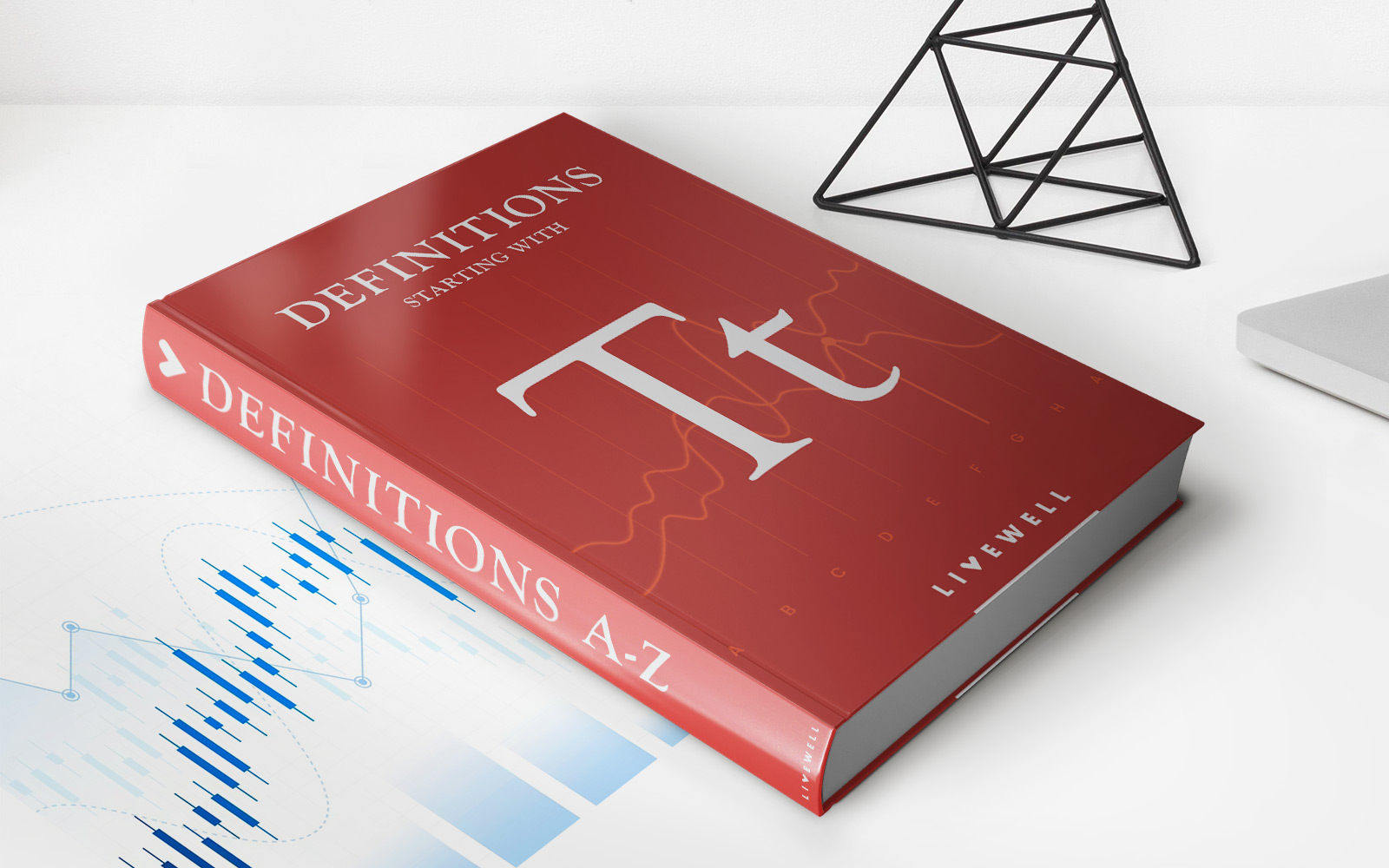

Finance
What Happens To 401K If You Leave The Country
Published: October 18, 2023
Discover what happens to your 401K if you leave the country and learn about the financial implications. Find out how to manage your finances while abroad.
(Many of the links in this article redirect to a specific reviewed product. Your purchase of these products through affiliate links helps to generate commission for LiveWell, at no extra cost. Learn more)
Table of Contents
- Introduction
- Understanding 401Ks
- Leaving the Country: Legal and Financial Considerations
- Options for Your 401K When You Leave the Country
- Withdrawing Your 401K
- Rolling Over Your 401K into an IRA
- Leaving Your 401K with Your Previous Employer
- Transferring Your 401K to Your New Employer
- Tax Implications and Reporting Requirements
- Handling Currency Exchange and International Transaction Fees
- Considerations for Different Types of Retirement Plans
- Seeking Professional Advice
- Conclusion
Introduction
When it comes to planning for retirement, many individuals rely on employer-sponsored retirement plans like a 401(k). These plans offer certain tax advantages and can help individuals grow their savings over time. However, life is full of surprises, and sometimes circumstances arise that require individuals to leave the country and move abroad for various reasons, such as work opportunities or a change in lifestyle.
But what happens to your hard-earned 401(k) when you leave the country? Can you still access those funds? What are the legal and financial considerations you need to keep in mind? In this article, we’ll explore the options available to you and shed light on the important factors you should consider when it comes to your 401(k) if you decide to make the move abroad.
Before we dive into the details, let’s first familiarize ourselves with what a 401(k) is and how it works. This understanding will provide a solid foundation for navigating the complexities of managing your retirement savings when leaving the country.
Understanding 401Ks
A 401(k) is a retirement savings plan offered by employers to their employees. It allows individuals to contribute a portion of their pre-tax income to a retirement account, which then grows tax-deferred until withdrawal. The contributions can be made through automatic payroll deductions, making it a convenient and consistent way to save for retirement.
One of the key advantages of a 401(k) is the potential for employer matching contributions. Many employers offer a matching program where they will contribute a certain percentage of the employee’s salary to their 401(k) account. This can significantly boost the growth of the retirement savings over time.
Another benefit of a 401(k) is the ability to choose from a variety of investment options. These options typically include mutual funds, stocks, bonds, and other securities. The investment choices allow individuals to tailor their portfolio based on their risk tolerance and retirement goals.
It’s important to note that 401(k) accounts are subject to certain rules and regulations imposed by the Internal Revenue Service (IRS). For example, there are contribution limits that restrict the amount of money an individual can contribute to their 401(k) account each year. Additionally, there are penalties for withdrawing funds from a 401(k) before the age of 59 and a half, unless certain exceptions apply.
Now that we have a basic understanding of what a 401(k) is, let’s explore what happens to this retirement savings vehicle when you decide to leave the country.
Leaving the Country: Legal and Financial Considerations
When you make the decision to leave the country and move abroad, there are important legal and financial considerations that you need to take into account regarding your 401(k) account. These considerations may vary depending on the country you are moving to and the specific regulations that govern retirement accounts in that country.
One of the key considerations is whether or not the country you are moving to recognizes and allows for the transfer or continuation of your 401(k) account. Some countries have agreements with the United States that allow for the transfer or consolidation of retirement accounts, while others may have restrictions or require a more complex process.
You will also need to consider the tax implications of moving your 401(k) account abroad. Different countries have different tax laws, and it’s important to understand how withdrawals from your 401(k) may be taxed in your new country of residence. Additionally, you may be subject to tax obligations in the United States when it comes to your 401(k) distributions, even if you are no longer a U.S. resident.
Another factor to consider is the currency exchange and international transaction fees that may be involved in moving your 401(k) funds to a foreign country. These fees can add up and impact the total amount of funds you will have available for retirement.
In some cases, you may find that leaving your 401(k) with your previous employer is the most practical solution. This may be especially true if you plan to return to the United States in the future or if your new country of residence does not have favorable options for managing your retirement savings.
Next, we will explore the options available to you when it comes to your 401(k) account if you decide to leave the country, including withdrawing your funds, rolling over into an Individual Retirement Account (IRA), leaving it with your previous employer, or transferring it to your new employer.
Options for Your 401K When You Leave the Country
When you leave the country and move abroad, you have several options to consider when it comes to your 401(k) account. It’s important to weigh these options carefully, taking into account your individual circumstances and the regulations of both your home country and your new country of residence.
One option is to withdraw your 401(k) funds. However, this should be considered as a last resort due to potential tax implications and penalties. Withdrawing your funds before reaching the age of 59 and a half may subject you to early withdrawal penalties imposed by the IRS.
Another option is to roll over your 401(k) into an Individual Retirement Account (IRA). This allows you to maintain the tax advantages of your retirement savings while gaining more control over the investment options and distribution strategies. An IRA can be an attractive option if you plan to manage your retirement funds independently.
Leaving your 401(k) with your previous employer is also a possibility. If you have a good relationship with your former employer and they allow you to keep the account, you can continue to enjoy the benefits of the 401(k) plan until you reach retirement age. However, it’s important to keep in mind that you may have limited access to the funds and may need to adhere to the rules and regulations set by the plan.
If you are moving to a new country and will be employed there, another option is to transfer your 401(k) to your new employer’s retirement plan, if they offer one. This can provide a seamless transition for your retirement savings and allow you to continue contributing to your retirement fund while enjoying any employer matching contributions.
Each option has its own advantages and disadvantages, and the best option for you will depend on factors such as your long-term plans, tax implications, investment preferences, and the regulations in both your home and new countries.
Next, we will delve into the tax implications and reporting requirements you need to consider when it comes to your 401(k) when leaving the country.
Withdrawing Your 401K
When leaving the country, one option for your 401(k) is to withdraw the funds. However, before you consider this option, it’s important to understand the potential tax implications and penalties associated with early withdrawals.
Withdrawing your 401(k) funds before reaching the age of 59 and a half may subject you to early withdrawal penalties imposed by the IRS. These penalties can be significant, typically amounting to 10% of the total withdrawal amount. Additionally, the withdrawn amount will be subject to income tax, which could further reduce the funds you receive.
It’s essential to consider your current tax bracket and the impact a lump-sum withdrawal from your 401(k) may have on your taxable income. Depending on the amount of the withdrawal, it could potentially push you into a higher tax bracket, resulting in a higher tax liability.
If you do decide to withdraw your 401(k) funds, it’s advisable to consult with a tax professional or financial advisor who can provide guidance and ensure you are aware of the potential tax consequences.
It’s worth noting that there are certain exceptions to the early withdrawal penalties, such as hardships, medical expenses, or disability. However, these exceptions are specific and require documentation to substantiate your eligibility.
Considering the potential tax implications and penalties associated with early withdrawals from your 401(k), it’s generally recommended to explore other options before resorting to this method. Withdrawing your 401(k) should be a last resort, and you should carefully evaluate the long-term impact on your retirement savings.
Next, we will explore the option of rolling over your 401(k) into an Individual Retirement Account (IRA).
Rolling Over Your 401K into an IRA
Rolling over your 401(k) into an Individual Retirement Account (IRA) is a popular option for individuals who leave the country and want to maintain control over their retirement funds. This option offers several advantages and allows you to continue enjoying the tax advantages of your savings.
By rolling over your 401(k) into an IRA, you can consolidate your retirement savings into a single account. This consolidation can make it easier to manage your investments and monitor the growth of your funds. Additionally, an IRA often provides a wider range of investment options compared to employer-sponsored retirement plans, allowing you to tailor your portfolio to your specific needs and risk tolerance.
One of the key benefits of rolling over into an IRA is the potential for continued tax deferral. Similar to a 401(k), contributions to a traditional IRA are typically tax deductible, and any investment earnings grow tax-deferred until withdrawn. This can help maximize the growth of your retirement savings over time.
Another advantage of an IRA is the flexibility it offers in terms of distribution options. With an IRA, you have more control over when and how you withdraw funds, allowing for potential tax planning strategies in retirement. Additionally, there are no required minimum distributions (RMDs) for Roth IRAs during the owner’s lifetime, providing more flexibility and control over your funds.
When considering a rollover to an IRA, it’s essential to be aware of the potential costs involved. Some IRA providers may charge fees for account maintenance or investment transactions. It’s important to research and compare different IRA providers to find one that aligns with your investment goals and offers competitive fees.
Before initiating a rollover, it’s advisable to seek guidance from a financial advisor or tax professional to ensure you understand the implications and process. They can help you navigate the rollover process smoothly and ensure that it aligns with your long-term financial goals.
Next, we will discuss the option of leaving your 401(k) with your previous employer.
Leaving Your 401K with Your Previous Employer
When leaving the country, one option for managing your 401(k) is to leave it with your previous employer. This option may be suitable if you have a good relationship with your former employer and they allow you to keep the account active.
Leaving your 401(k) with your previous employer can offer some advantages. For instance, you can continue to benefit from the tax advantages and investment options of the plan. You won’t have to make any immediate decisions or worry about finding an alternative account to transfer your funds. This can be particularly beneficial if you plan to return to the United States in the future or if your new country of residence doesn’t offer favorable retirement savings options.
Staying with your previous employer’s 401(k) plan also means you can maintain the potential for employer matching contributions, if applicable. This can significantly boost your retirement savings over time and provide an additional incentive to leave your funds with your previous employer.
However, there are some considerations to keep in mind. Depending on your former employer’s plan rules, you may have limited control over the investment options and flexibility in managing your account. You might be restricted to the plan’s available investment options and face certain restrictions when it comes to making changes or withdrawals.
It’s crucial to stay informed about the plan’s rules, fees, and any changes that may occur over time. You should also periodically review the performance and fees associated with the plan to ensure it aligns with your retirement goals and remains a suitable option for your financial needs.
If leaving your 401(k) with your previous employer is your preferred choice, it’s still advisable to periodically check in on the account and assess its performance. This will help to ensure that your retirement savings continue to grow and align with your long-term financial objectives.
Next, we will explore the option of transferring your 401(k) to your new employer’s retirement plan.
Transferring Your 401K to Your New Employer
If you leave the country and secure new employment in your new country of residence, one option for managing your 401(k) is to transfer it to your new employer’s retirement plan, provided they offer one.
Transferring your 401(k) to your new employer’s retirement plan can have certain advantages. Firstly, it allows for a seamless transition of your retirement savings, consolidating your funds into a single account. It also enables you to continue contributing to your retirement fund and potentially benefit from any matching contributions your new employer offers, which can significantly enhance the growth of your savings.
Moving your 401(k) to your new employer’s retirement plan provides the convenience of having all your retirement savings in one place. It simplifies management and monitoring of your investment portfolio and may give you access to a fresh set of investment options that align with your new employer’s plan offerings.
However, before initiating a transfer, it is important to compare the features and benefits of your new employer’s retirement plan with your existing 401(k) account. Consider factors such as investment options, fees, and any potential restrictions on withdrawals or contribution limits. This will ensure that the new plan is suitable for your long-term financial goals.
It’s also worth noting that not all retirement plans accept rollovers from 401(k) accounts. Confirm with your new employer’s plan administrator whether they allow incoming rollovers and the process for initiating the transfer.
When transferring your 401(k) to your new employer’s retirement plan, be mindful of any possible tax implications. Depending on the country and the specific regulations, a rollover may have tax implications, both in your home country and your new country of residence.
It’s important to consult with a tax professional or financial advisor who can guide you through the transfer process and help ensure that you fulfill any legal requirements and understand the potential tax implications.
Next, we will explore the tax implications and reporting requirements associated with managing your 401(k) when leaving the country.
Tax Implications and Reporting Requirements
When leaving the country and managing your 401(k), it’s crucial to consider the tax implications and reporting requirements associated with your retirement savings. The tax treatment of your 401(k) funds may vary depending on the country you are moving to and your tax residency status.
Firstly, it’s important to understand that distributions from a 401(k) account are generally subject to income tax. This applies whether you withdraw the funds, roll over into an IRA, or transfer to a new employer’s retirement plan. The amount withdrawn will be considered taxable income in the year of distribution, potentially increasing your tax liability.
Additionally, certain countries have tax treaties with the United States that may affect the tax treatment of your 401(k) distributions. These treaties can impact the taxation of your retirement funds, potentially reducing or eliminating double taxation on your withdrawals.
Furthermore, when you are a tax resident of a different country, you may need to fulfill reporting requirements for your 401(k) accounts. Some countries have their own tax regulations and may require you to report your offshore retirement accounts on annual tax returns or specific reporting forms. Understanding these reporting obligations is essential to ensure compliance with local tax laws.
It is recommended to consult with a tax professional or financial advisor who is knowledgeable in both U.S. and international tax laws. They can provide guidance on the specific tax implications and reporting requirements associated with your 401(k) funds when leaving the country. They can also assist in maximizing any potential tax benefits or minimizing tax liabilities, ensuring that you adhere to all necessary reporting obligations.
It’s crucial to stay informed and keep up to date with tax regulations in both your home country and your new country of residence. By doing so, you can make informed decisions and effectively manage the tax implications of your 401(k) when navigating international moves and retirement planning.
Next, we will discuss handling currency exchange and international transaction fees when managing your 401(k) abroad.
Handling Currency Exchange and International Transaction Fees
When managing your 401(k) abroad, one aspect to consider is the handling of currency exchange and international transaction fees. These fees can impact the overall value of your retirement savings and should be taken into account when making decisions about your 401(k).
Firstly, when you leave the country, it’s likely that your retirement savings will be in the currency of your home country. If you move to a new country with a different currency, you will need to consider how to handle the currency exchange. Fluctuations in exchange rates can affect the value of your retirement funds when they are converted to the new currency.
It’s important to be aware of the fees associated with currency exchange. Banks and financial institutions often charge fees and apply less favorable exchange rates, which can eat into your retirement savings. Researching different options, such as using dedicated currency exchange services or online platforms, can potentially help you find more favorable rates and lower fees.
Addionally, when managing your 401(k) abroad, you may encounter international transaction fees. These fees can apply when you make contributions to your retirement account or when you receive distributions. Financial institutions may charge fees for processing transactions involving international accounts or for converting funds to different currencies.
Be sure to review the fees associated with your 401(k) account, especially if you anticipate making regular contributions or needing to access your funds while abroad. Understanding the potential international transaction fees can help you make informed decisions and minimize unnecessary costs.
Consider consulting with your financial institution or financial advisor to explore options for minimizing currency exchange fees and international transaction fees. They can provide guidance on cost-effective strategies for managing your 401(k), such as leveraging currency exchange services with competitive rates or choosing investment options that align with your new country of residence to reduce currency conversion needs.
By being proactive and considering the impact of currency exchange and international transaction fees, you can help maximize the value of your 401(k) while managing your retirement savings abroad.
Next, we will discuss considerations for different types of retirement plans that you may have in addition to your 401(k).
Considerations for Different Types of Retirement Plans
When managing your retirement savings abroad, it’s important to consider the specific characteristics and regulations of the different types of retirement plans you may have in addition to your 401(k). Understanding these nuances will help you make informed decisions that align with your long-term financial goals.
If you have an Individual Retirement Account (IRA), similar considerations regarding tax implications, reporting requirements, and investment options apply as discussed earlier. However, it’s worth noting that different types of IRAs, such as Traditional IRAs and Roth IRAs, have distinct rules and tax advantages. For example, contributions to a Traditional IRA may be tax-deductible, while distributions in retirement are generally taxable. In contrast, Roth IRAs are funded with post-tax dollars, and qualified withdrawals in retirement are tax-free. It’s crucial to understand the specific rules and tax implications of your IRA when managing it abroad.
If you have a pension or defined benefit plan, the considerations may differ. These plans provide a guaranteed income stream in retirement, typically based on factors such as years of service and salary. However, managing these plans abroad may involve navigating different tax rules and reporting requirements, as well as potential currency conversion considerations if you receive payments in a different currency. It’s advisable to consult with a financial advisor or tax professional who specializes in international taxation to ensure compliance and maximize the benefits of your pension plan.
Other retirement plans, such as 403(b) plans for employees of certain tax-exempt organizations or 457 plans for government and non-governmental employees, also have their own unique features and regulations. It’s crucial to understand the specifics of these plans when managing them abroad, including any restrictions on contributions, withdrawal rules, and any potential tax benefits or liabilities associated with them.
Overall, when managing your retirement savings abroad, it’s important to review the details and requirements of each individual retirement plan you hold. This includes understanding the tax treatment, reporting obligations, investment options, and any potential currency conversion considerations. Seeking guidance from a financial advisor or tax professional with international expertise can help you navigate the complexities and make informed decisions.
Next, let’s discuss the importance of seeking professional advice when managing your retirement savings abroad.
Seeking Professional Advice
Managing your retirement savings abroad can be a complex endeavor, especially when it involves navigating different tax laws, reporting requirements, and investment options. To ensure you make informed decisions and optimize your retirement strategy, seeking professional advice from a financial advisor or tax professional is highly recommended.
A financial advisor or tax professional who specializes in international taxation and retirement planning can provide valuable insights and guidance tailored to your specific circumstances. They can help you understand the tax implications of managing your retirement accounts abroad, navigate cross-border transactions, and ensure compliance with reporting requirements in both your home country and your new country of residence.
By working with a professional, you can develop a comprehensive retirement plan that takes into account the unique aspects of your situation. They can help you evaluate the best options for managing your 401(k) and other retirement plans, consider potential tax efficiencies, and craft an investment strategy that aligns with your goals and risk tolerance.
Furthermore, a professional advisor can provide invaluable expertise and keep you updated on changes in tax laws and regulations. International tax codes and retirement policies can evolve over time, and having a trusted advisor by your side ensures that you stay ahead of any legal or regulatory changes that may impact your retirement savings.
When seeking professional advice, it’s important to choose an advisor with experience in international taxation and retirement planning. Look for certifications, such as Certified Financial Planner (CFP) or Certified Public Accountant (CPA), and inquire about their specific knowledge and track record in handling international retirement scenarios.
Before making any decisions, consider consulting with multiple advisors to gather different perspectives and ensure you’re getting well-rounded advice. Compare their recommendations, fees, and services to find the best fit for your needs.
Remember, each individual’s financial situation is unique, and seeking professional advice allows you to tailor a retirement plan that aligns with your goals and ensures a smooth management of your retirement savings while living abroad.
Finally, let’s summarize the key points covered in this article.
Conclusion
When it comes to managing your 401(k) when leaving the country, there are several important considerations to keep in mind. Understanding the options available to you, such as withdrawing your funds, rolling over into an IRA, leaving it with your previous employer, or transferring it to your new employer, is crucial for making informed decisions that align with your long-term financial goals.
It’s important to take into account the legal and financial considerations of leaving the country, such as the tax implications and reporting requirements in both your home country and your new country of residence. Seeking professional advice from a financial advisor or tax professional who specializes in international taxation and retirement planning can provide invaluable guidance to navigate the complexities of managing your retirement savings abroad.
In addition to your 401(k), it’s essential to consider any other types of retirement plans you may have, such as IRAs or pension plans, and understand their specific rules and regulations. Factors such as currency exchange and international transaction fees should also be taken into consideration to maximize the value of your retirement savings.
Overall, by being proactive, seeking professional advice, and staying informed about the legal and financial implications, you can effectively manage your 401(k) and other retirement plans while living abroad. With careful planning and consideration, you can ensure that your retirement savings continue to grow and provide financial security in the years to come.














